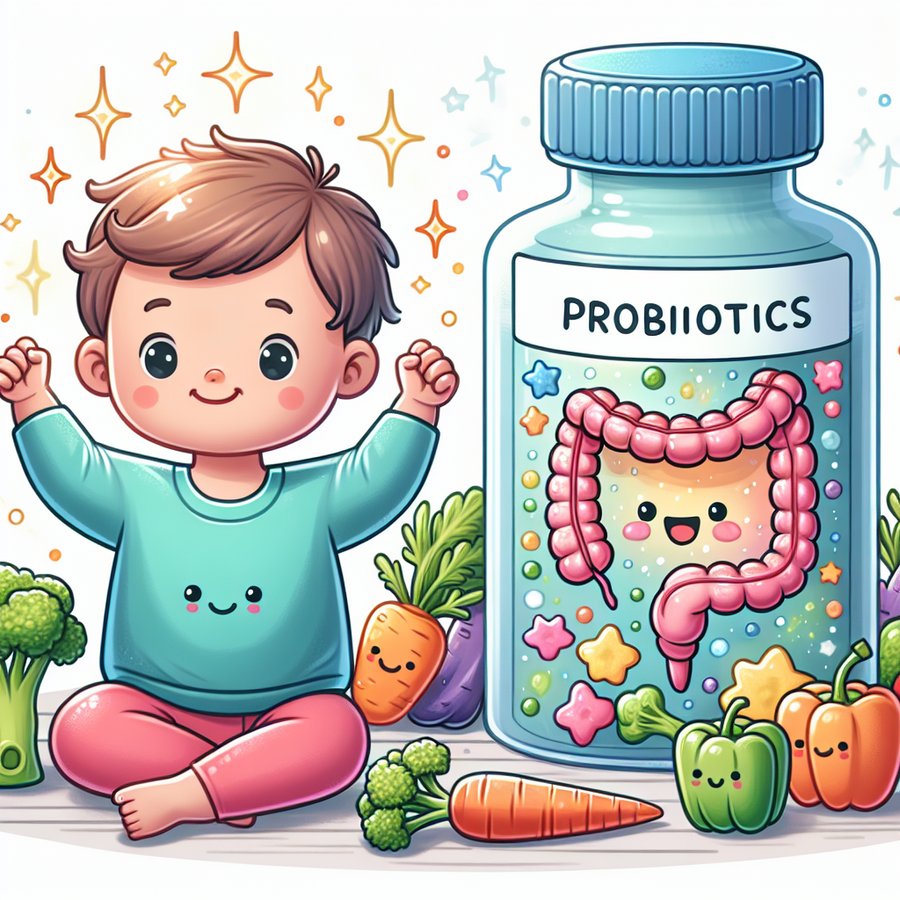The role of probiotics in infant gut health is an evolving area of pediatric care that has garnered significant attention from both medical professionals and new parents alike. Probiotics, often referred to as ‘good bacteria,’ play a crucial role in developing a robust digestive system, supporting immune function, and preventing various health issues. This article dives deep into how probiotics contribute to infant gut health, the best sources of probiotics for babies, and practical tips for integrating them into your little one’s diet.
Understanding the Infant Gut Microbiome
The gut microbiome is a complex ecosystem of bacteria, viruses, fungi, and other microorganisms that reside in the digestive tract. From birth, this microbial community begins to form, heavily influenced by the mode of delivery, breastfeeding, and early exposure to antibiotics. A balanced gut microbiome is essential for efficient nutrient absorption, protection against pathogens, and the development of the immune system.
Studies have shown that probiotics can significantly impact the composition and health of the infant gut microbiome. By introducing beneficial bacteria, probiotics help in maintaining the balance between good and bad bacteria, which is crucial for infants’ health and development. For more detailed information on the infant gut microbiome, consider reading [The Role of Probiotics in Infant Gut Health].
The Role of Probiotics in Infant Gut Health
Probiotics offer multiple health benefits for babies, including aiding digestion, enhancing immune function, and potentially reducing the risk of conditions like eczema and allergies. They work by colonizing the gut with beneficial bacteria, competing with harmful bacteria for resources, and stimulating the body’s immune response.
For instance, the probiotic strains Lactobacillus and Bifidobacterium have been extensively studied for their positive effects on infant gut health. These probiotics not only help in the digestion of lactose and other substances but also play a role in preventing gastrointestinal infections and inflammation. Incorporating probiotics into an infant’s diet can be done through breast milk, probiotic-supplemented formulas, or probiotic-rich foods, depending on the baby’s age and dietary needs. For more insights on integrating probiotics into your baby’s diet, check out [Managing Lactose Intolerance in Babies].
Choosing the Right Probiotics for Your Baby
Selecting the appropriate probiotic supplement or food for your baby involves understanding the different strains of probiotics and their specific benefits. It’s important to choose products designed for infants and young children, as they contain strains and dosages tailored to their delicate digestive systems.
When choosing probiotic supplements, look for ones with clinical evidence supporting their safety and efficacy in infants. Consulting with a pediatrician is always recommended before adding any supplement to your baby’s regimen. This ensures that the probiotics complement your baby’s diet and health needs without causing any adverse effects. For a guide on safe supplementation, reference [Breast Milk Storage and Handling Safety Tips].
In conclusion, the role of probiotics in infant gut health is undeniable. From supporting digestion and immune function to potentially preventing allergies and eczema, probiotics offer a range of health benefits. By understanding the importance of the gut microbiome, recognizing the health advantages of probiotics, and choosing the right products, parents can significantly contribute to their infant’s health and well-being. Always consult with your pediatrician to ensure the best care for your little one.
For parents seeking to delve deeper into infant health and wellness, exploring resources on [Recognizing Signs of Food Allergies in Infants] and [Addressing Eczema in Babies: Treatment and Care Tips] can provide valuable insights into managing common health concerns with informed and nurturing care.













